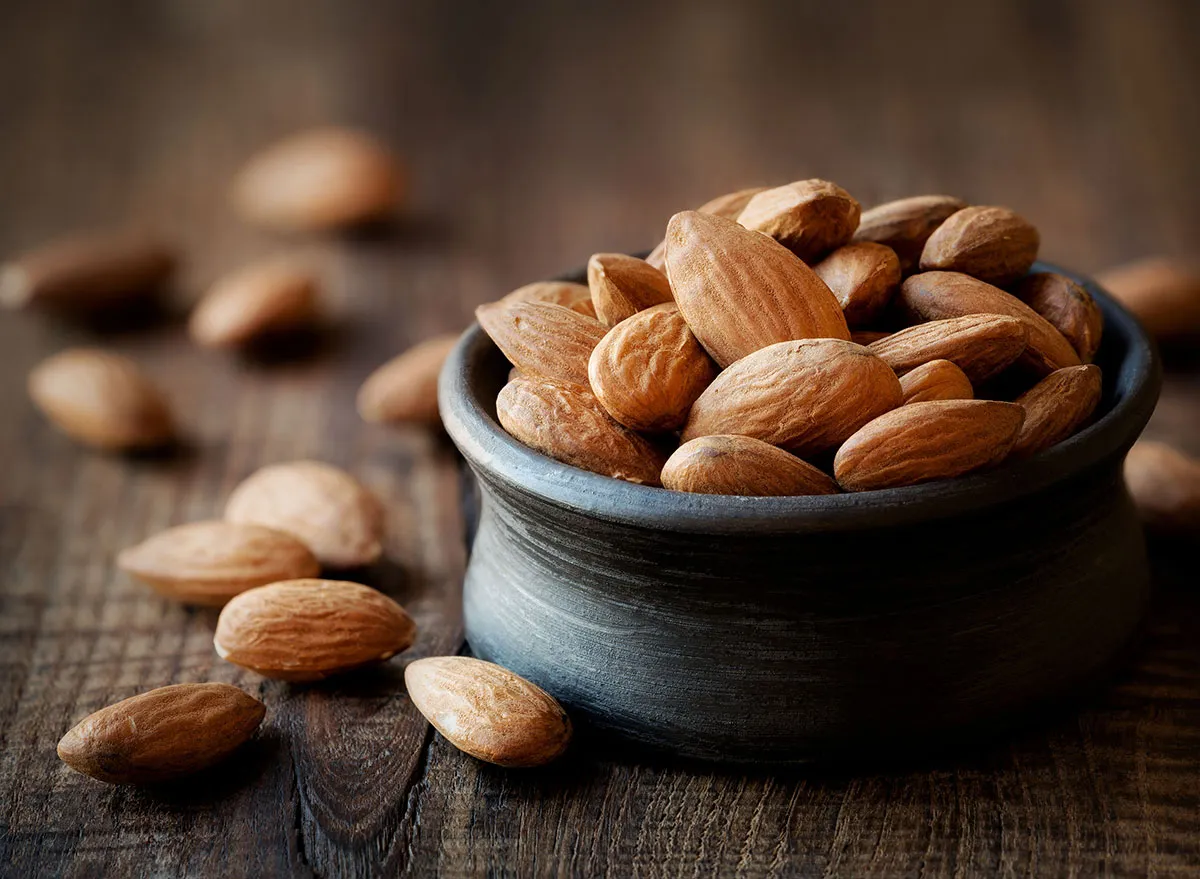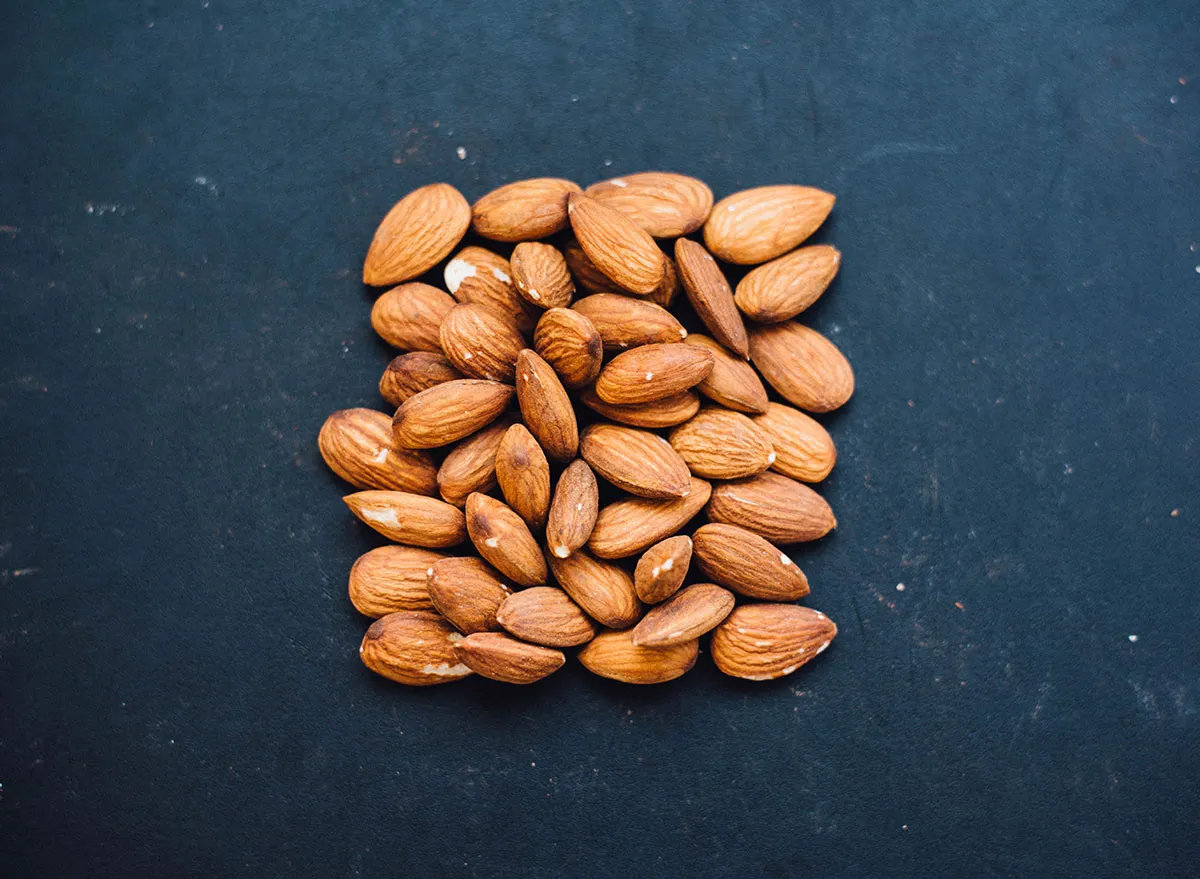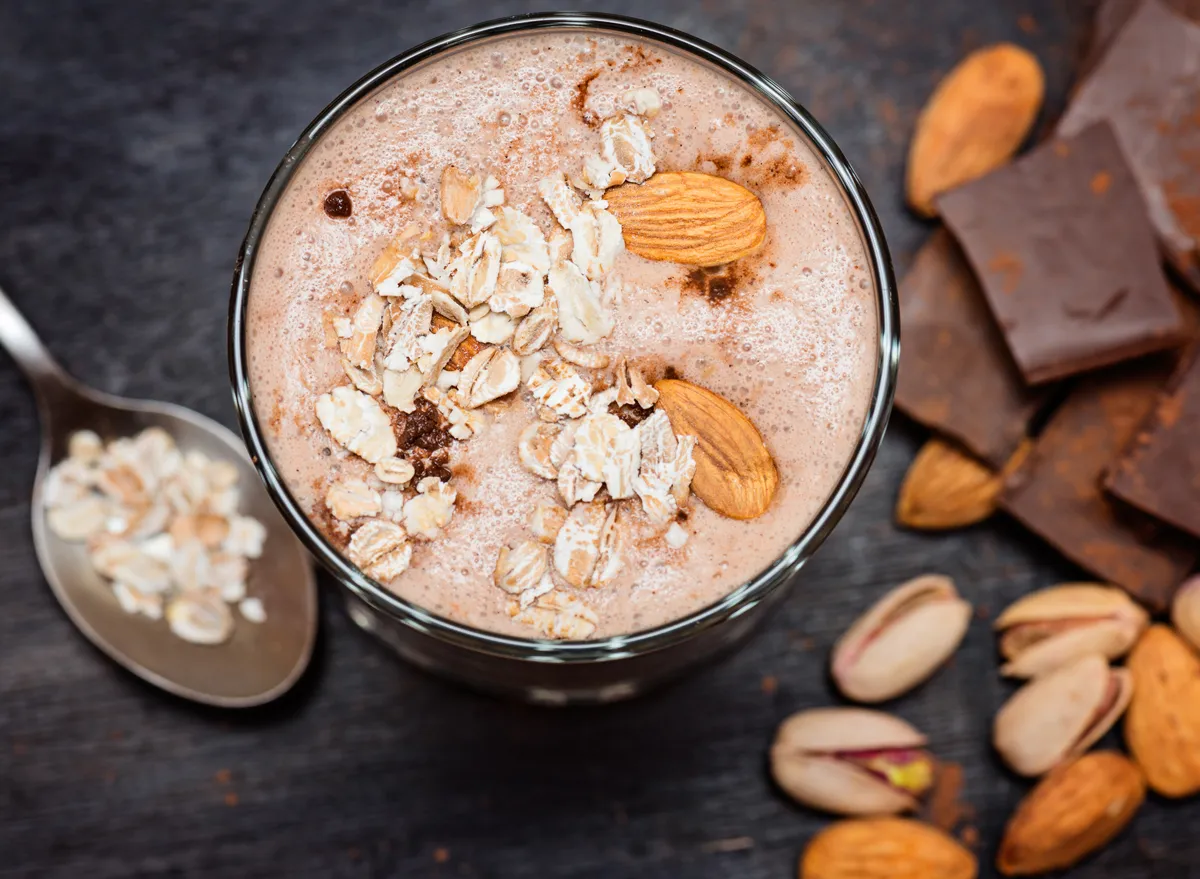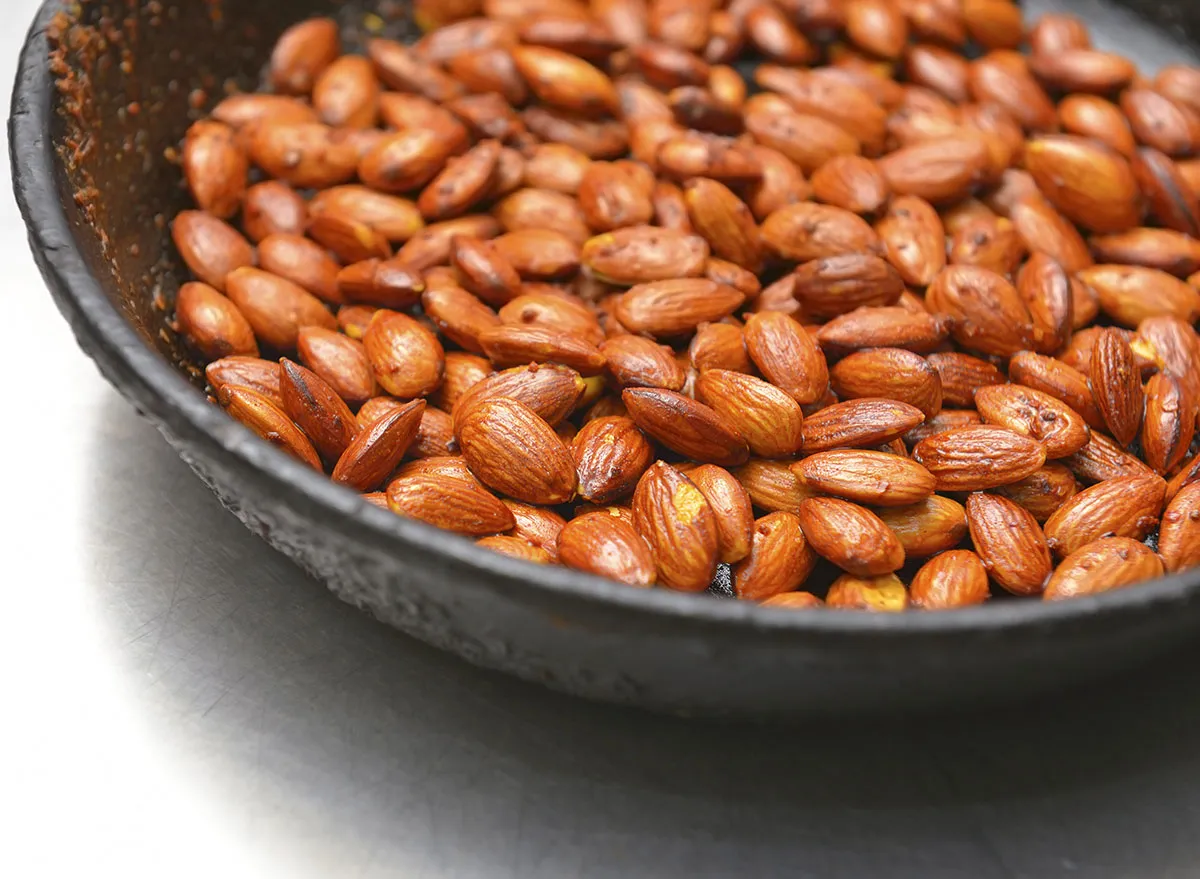Almonds may not seem like the most exciting snack to you—but they should. When you factor in all of the secret effects eating almonds can have on your body, you're going to find yourself incorporating this nutritious nut into every meal imaginable. Sure, these nuts are crunchy and full of good healthy fats, but eating almonds also can provide your body with a ton of benefits that keep you feeling energized and beautiful.
We discussed these benefits in detail with Toby Smithson, MS, RDN, LD, CDCES, FAND, Diabetes Lifestyle Expert with DiabetesEveryDay, and author of Diabetes Meal Planning and Nutrition for Dummies. She's also a spokesperson for the Almond Board of California, which means she knows a lot about almonds and how they can benefit your body in multiple ways.
They're a good source of protein and fiber.

"There's serious nutrition power in the crunch of almonds," says Smithson. "Ounce for ounce, almonds are the tree nut with the most fiber (4 grams), vitamin E (50%of your daily value), and riboflavin (25% DV). They're also one of the highest sources of hard-to-get magnesium (20% DV). And, they offer 6 grams of plant protein in every healthy handful."
They're great for your skin.

"Consume a handful of almonds twice a day to keep the wrinkles away," says Smithson, "Research on postmenopausal women has shown that eating two (one ounce) servings of almonds per day may help reduce wrinkles and skin pigmentation."
Smithson specifically points out that wrinkle severity decreased by 16%, and overall facial pigment intensity decreased by 20%.
"The researchers suggest that vitamin E and niacin may be partly responsible for these effects but note that the findings emphasize the need to look at almonds as a whole food with multiple nutrient components that work synergistically, rather than oversimplifying benefits to single nutrients," says Smithson.
They can decrease belly fat.

"In a 12-week study among healthy overweight and obese adults who were compliant with a calorie-restricted diet, those who included almonds daily (15% of total calories coming from almonds) versus those who did not include nuts saw similar weight loss," says Smithson. "But what's most interesting is that the almond-eating dieters lost proportionally more body fat and more specifically, more fat from the truncal region (or belly fat)."
Smithson points out that reducing belly fat is linked to a reduced risk of developing metabolic syndrome which causes conditions such as high blood sugar, elevated blood pressure, abnormal cholesterol levels, as well as an increased risk of cardiovascular disease and diabetes.
They're great for your heart.

"Heart health is a key area of study, and a systematic review that included 18 studies found that eating almonds results in significant reductions in total and 'bad' LDL cholesterol and triglycerides, without negatively impacting 'good' HDL cholesterol," says Smithson.
She also points out another study from Penn State researchers published by The Journal of Nutrition that choosing almonds as a snack versus a high-carbohydrate snack can be beneficial for the "good" HDL cholesterol in your body.
You'll save on calories.

Almonds may seem high in calories (170 calories per 1/4 cup), but the way your body digests these calories may look a lot different compared to other foods. Smithson points out data from UC Davis that shows how both roasted and unroasted almonds provide fewer calories than you realized.
"Using a new method, the researchers were able to determine the number of calories actually digested and absorbed from almonds," says Smithson. "In whole unroasted almonds, 25% fewer calories are absorbed, while whole roasted almonds offer 19% fewer calories and chopped roasted almonds offer 17% fewer calories, compared to the number of calories listed on nutrition labels."
"Why the discrepancy? The calories calculated for the label don't account for bioavailability," Smithson continues. "The chewing process does not completely break down almond cell walls, leaving a portion of the cells intact and unabsorbed during digestion. Mechanical processes, such as roasting, chopping, and grinding, as well as the act of chewing, also disrupt the cell wall of almonds and affect particle size and therefore, calorie availability, too."